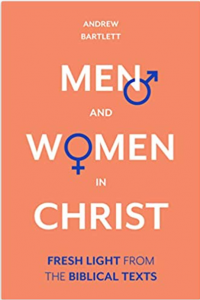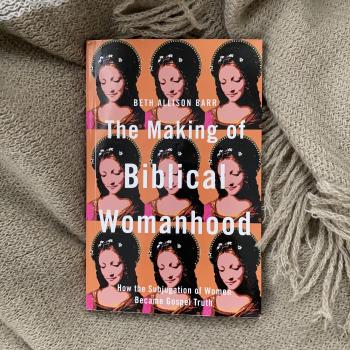
Mark Twain once said, “The difference between the almost right word and the right word is really a large matter. ’Tis the difference between the lightning bug and the lightning.”
The current conversation about women in the church proves Twain’s point. To understand the issues, we need clear terms that accentuate the real differences between the various views. But those who define the terms control the arguments, and thus far the debate is fraught with confusion.
If you are new to the discussion, the views in question relate to the Bible’s commentary on women and what they can or cannot do in society, the church, and family. Various scriptural passages speak to this issue (another topic for another post), and two broad categories have emerged: Complementarians believe the Bible places certain limits on women (though adherents hold to a wide spectrum of convictions on exactly what those limits are), while egalitarians understand the Bible to demonstrate equality between the sexes.
The Two Major Categories Summarized

Egalitarianism
- God created men and women to be truly equal but, since the fall (Genesis 3), women have been oppressed by men. Historically, patriarchal cultures unjustly kept women under male control.
- Jesus came to redeem the world from the effects of sin including women’s liberation from male domination, but after a short-lived good start, the church accommodated itself to patriarchal culture.
- It is only recently that churches have begun to treat women as equals of men; there is more work yet to be done.
- Complementarianism must be opposed. It is a misguided attempt to cling to misinterpretations of the Bible, which arose from the sinfulness of patriarchal culture.
Complementarianism
- God created men and women to be truly equal. It is right to acknowledge men’s bad behavior towards women, which conflicts with God’s design. The modern controversy over a woman’s place has had the good effect of highlighting and correcting wrong attitudes.
- The concern for equality does not justify departing from the “plain” teaching of the Bible, which is for our good and for God’s glory.
- There is an important distinction to be drawn between equality of worth and sameness of role. God has called men and women to different roles. Men are called to lead in the family and in the church.
- Egalitarianism must be opposed. It fails to distinguish correctly between God’s Word and cultural misinterpretations of God’s Word.
(The two lists above were derived from Andrew Bartlett’s Men and Women in Christ: Fresh Light from the Biblical Texts)
Clearly, each side views the issue through different lenses. But, these terms are, shall we say, less than accurate. For instance, both groups adhere to doctrines that reflect the other group’s label, such as:
- Like egalitarians, complementarians believe that men and women are equal in their dignity and worth in the sight of God.
- Like complementarians, egalitarians believe that men and women complement one another in their service in the church and family.
Both labels affirm these same beliefs:
- Men and women experience the same path to a saving faith and will enjoy eternal life together.
- God gives men and women spiritual gifts with no respect to gender.
- God created men and women with unique differences that are good.
At face value, the labels complementarians and egalitarians give themselves are misleading and reductionistic, and they don’t accurately reflect their distinct differences. Author and professor Michelle Lee-Barnewall asserts the limitation of using these terms:
…there is a growing sense among many that neither position quite encapsulates what they sense is the biblical view, along with the desire to explore the topic beyond the bounds of the current positions…I have come to believe that the topics cannot be completely defined by either complementarian or the egalitarian viewpoint, and that there is room, perhaps even a necessity for an alternative way of conceptualizing gender issues. ¹
British theologian and professor Lucy Peppiatt prefers the terms hierarchicalists and mutualists. She writes,
The term complementarian should describe a view where two different entities enhance one another in a reciprocal, harmonious, and interdependent fashion. Although complementarians claim to hold a view that describes the relationship of men to women as such, my opinion is that this represents a sleight of hand…complementarians believe that men and women stand before God as equally saved, but their view of the relations of men and women sociologically is predicated on the subordination of women to men, where men hold positions of authority and women do not unless they are under male authority.²
Peppiatt argues that mutualist more accurately describes what egalitarians believe, that interactions between men and women are characterized by equally shared power for the mutual benefit of both. But complementarians don’t reject all mutuality; many of them are quite friendly to men and women working alongside each other. So where do we go?











